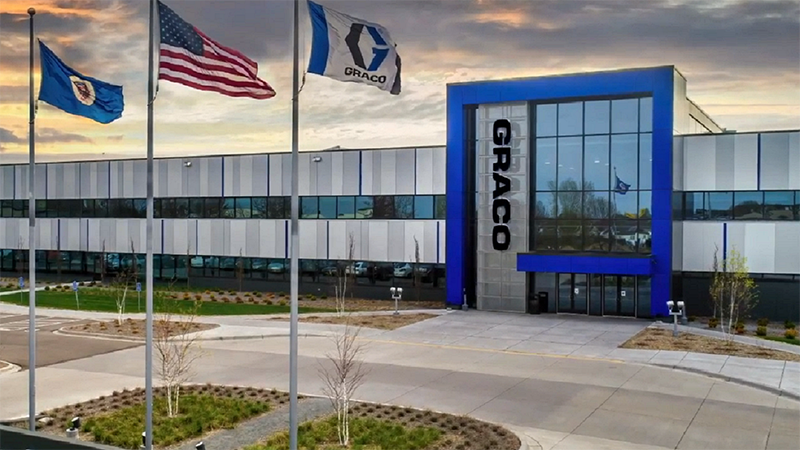Thought Leadership July 2023
New Michigan Supreme Court Ruling: A Must-Read for All Automotive and Manufacturing Companies
Supply Chain Article by Miller Canfield's Automotive Team
Data shows the manufacturing industry is targeted most often for cyber attacks. Constructing cyber defenses to protect operations will be crucial as organizations increase cyber complexity. Learn about new cyber threats and how to protect the factory of the future against them.
A new Michigan Supreme Court decision will affect supply agreements and contracts within the state. Understand how this decision impacts manufacturing with this detailed overview penned by law firm Miller Canfield's Automotive Team.
Many "blanket" supply agreements in the automotive and other industries provide that the buyer will specify the quantity to be delivered only by issuing periodic "releases." On July 11, the Michigan Supreme Court held for the first time that such a "release-by-release" contract is not enforceable beyond the quantity specified in issued releases, and therefore can be terminated by either party.
In MSSC, Inc. v. AirBoss Flexible Products Co., the Court interpreted the statute of frauds provision in Uniform Commercial Code Section 2-201(1), MCL 440.2201(1), which provides that a contract for the sale of goods for more than $1,000 must be in writing, and such a "contract is not enforceable beyond the quantity of goods shown in the writing." The Court noted that while the statute of frauds is satisfied only if the contract specifies the quantity of goods to be purchased, MCL 440.2306(1) provides for contracts that measure quantity by either the "output" of the supplier or the "requirements" of the buyer, and both types of contracts satisfy the statute of frauds.
In MSSC, the Court considered a third type of contract a "blanket" purchase order that states the quantity will be specified only in "releases" to be issued later but does not obligate the purchaser to order any specific quantity. The Court in MSSC held that absent language sufficient to create either an "output" contract or a "requirements" contract, such a "release-to-release" contract does not satisfy the statute of frauds, and does not obligate the supplier to issue or the supplier to accept future releases.
MSSC arose out of what has become a familiar pricing dispute. When AirBoss refused to continue supplying MSSC with parts at a price set out in a blanket purchase order, MSSC sued. MSSC sought an emergency injunction to force AirBoss to continue to supply for the life of the program at the prices set forth in the blanket purchase order. The trial court held that although neither the purchase order nor MSSC's terms and conditions expressly required MSSC to purchase any quantity of parts, the purchase order nevertheless constituted a requirements contract because it contained the word "blanket" and extrinsic evidence indicated it was to last for the "life of the program." The trial court granted a preliminary injunction and summary disposition in favor of MSSC.
In a published decision, the Court of Appeals agreed with the trial court, holding that a purchase order with the word "blanket" on its face — but without any other quantity — was an enforceable requirements contract. The Court of Appeals relied on its earlier decisions from 1986 and 2020.
The Michigan Supreme Court reversed. The Court began its analysis by noting that a quantity is the only essential term required by the UCC's statute of frauds. The Court recognized that the quantity requirement was met by output and requirement contracts, but held that the term "blanket" in MSSC's purchase order did not obligate MSSC to purchase any specific quantity or portion of its requirements and that the existence of a quantity term could not be established by extrinsic evidence. The Court concluded that MSSC's blanket purchase order was unenforceable and AirBoss was free to stop accepting releases at any time. The Court reversed the 1986 Court of Appeals decision relied on by the lower courts and distinguished the 2020 decision.
The Michigan Supreme Court decision will no doubt affect certain contracts in the automotive and manufacturing industries. There are some immediate takeaways from the decision:
Buyers and suppliers should immediately review their existing contracts governed by Michigan law to determine whether they satisfy the UCC statute of frauds under the MSSC decision.
In particular, the MSSC decision renders the "blanket" purchase order language that has been used by some Tier 1 and Tier 2 automotive suppliers unenforceable beyond the releases actually issued and accepted.
Because there are few published decisions addressing this issue, the MSSC decision will likely be relied on by courts outside of Michigan, and therefore companies with contracts governed by law of other states should also evaluate the effect of the decision.
If you would like to read the Michigan Supreme Court's opinion, please click here.
Robert Murkowski and A. Michael Palizzi help lead Miller Canfield's Automotive Team. Miller Canfield stands ready to assist clients in assessing their current contracts and terms to address this significant change to Michigan law. Please contact the authors of this alert or your Miller Canfield attorney to discuss this issue further.
Sign up today for a free Essential Membership to Automation Alley to keep your finger on the pulse of digital transformation in Michigan and beyond.

Robert Murkowski (left) is a principal attorney in Miller Canfield’s Litigation and Dispute Resolution Group and a co-leader of the firm’s automotive industry team. He represents OEMs and tiered automotive suppliers, as well as clients in various complex commercial, corporate, antitrust, class action, contract, non-competes/NDAs, and insurance disputes.
|
||||
|
||||
Automation Alley is a nonprofit Industry 4.0 knowledge center and home to the World Economic Forum's US Center for Advanced Manufacturing. With a global outlook and a regional focus, we facilitate public-private partnerships by connecting industry, education, and government to fuel Michigan's economy and accelerate innovation. Our programs give businesses a competitive advantage by helping them along every step of their digital transformation journey. We obsess over disruptive technologies like AI, the Internet of Things, and automation, and work hard to make these complex concepts easier for companies to understand and implement. Visit automationalley.com.
Photos as shared and provided by Automation Alley, Project DIAMOnD Press Conference (Image by Sean Healey)












.jpg)






